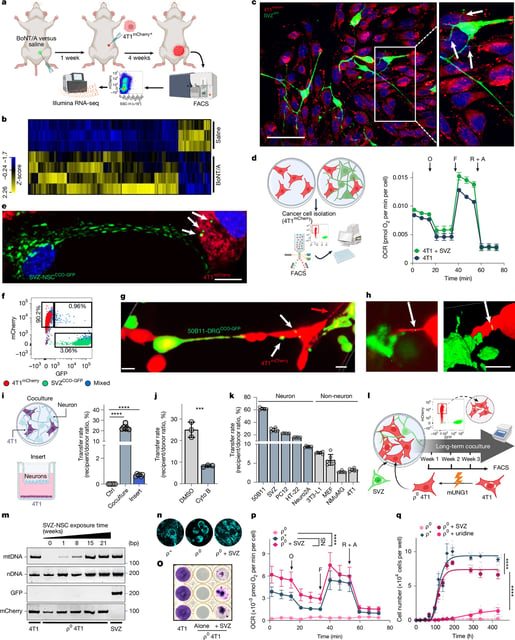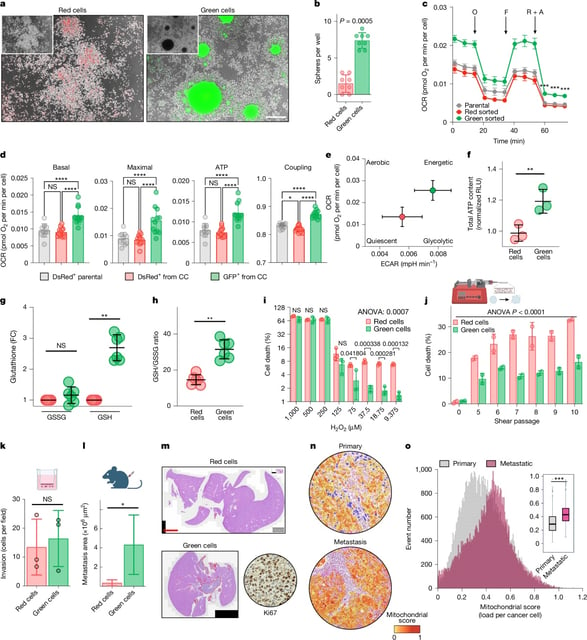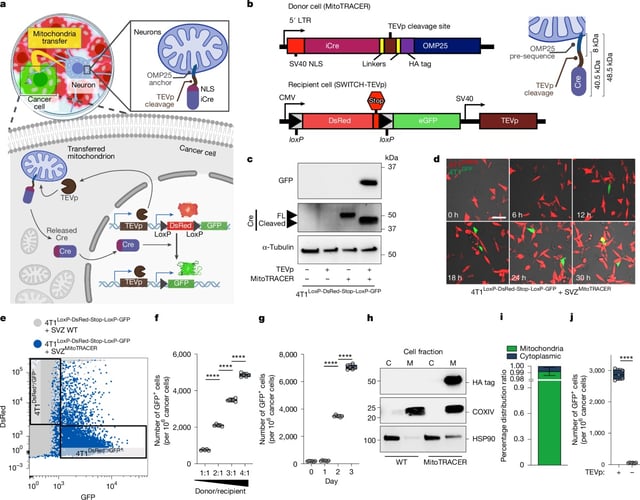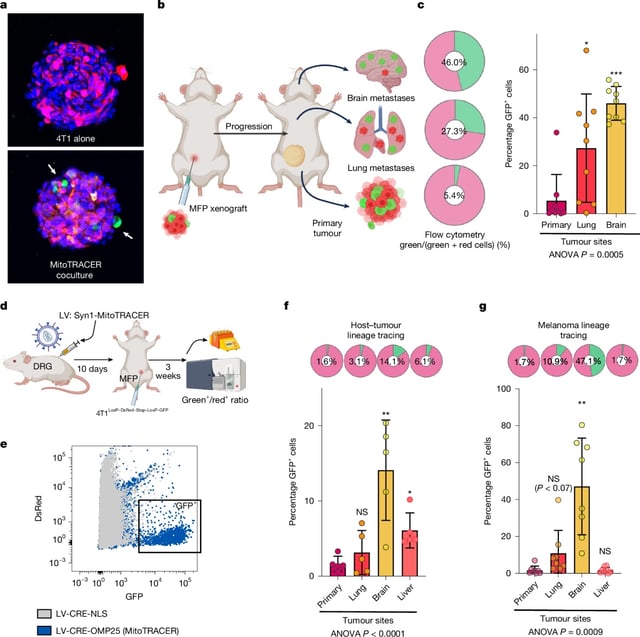Overview
- A study published June 25 in Nature reports that cancer cells form ultrathin tubes to siphon mitochondria from adjacent nerve cells.
- In mouse models of breast cancer, 2% of primary tumor cells and 14% of brain metastases contained nerve-derived mitochondria.
- Analysis of patient samples showed metastatic breast cancer cells carried 17% more mitochondria than primary tumors, and prostate tumor cells adjacent to nerves harbored significantly higher mitochondrial counts.
- Acquired mitochondria enhance cancer cells’ ability to withstand the physical and chemical stresses of bloodstream travel during metastasis.
- Investigators from the University of South Alabama, Roswell Park and UT Health Houston aim to develop drugs that block this mitochondrial transfer to impede tumor spread.



